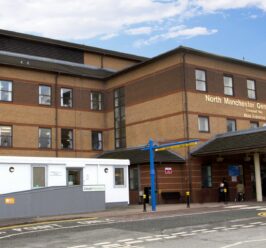Why Is Antimicrobial Stewardship (AMS) Needed?
Antimicrobial Stewardship (AMS) is essential because antibiotic/antifungal misuse leads to drug resistance, treatment failures, and increased healthcare costs. Without AMS, we risk losing effective antibiotics, making even common infections life-threatening.
What are the intended benefits of Antimicrobial Stewardship?
🔹 1. Prevents Antibiotic Resistance
🚨 Overuse & misuse of antibiotics lead to antimicrobial resistance (AMR), where bacteria no longer respond to treatments. This makes infections harder to treat and increases the risk of superbugs (e.g., MRSA, drug-resistant TB).
✔ AMS ensures antibiotics are only used when necessary to slow resistance development.
🔹 2. Improves Patient Outcomes
❌ Unnecessary IV antibiotics can lead to complications like kidney damage, allergic reactions, and infections (e.g., C. difficile colitis).
✔ AMS promotes early IV-to-oral switches where safe, leading to faster recovery, fewer side effects, and shorter hospital stays.
🔹 3. Reduces Healthcare Costs
💰 Prolonged or inappropriate antibiotic use leads to longer hospital stays, expensive treatments, and higher healthcare costs.
✔ AMS saves money by reducing unnecessary drug use, hospital-acquired infections, and complications.
🔹 4. Protects Future Generations
🦠 If resistance continues unchecked, routine infections and surgeries could become life-threatening. AMS ensures future patients still have effective antibiotics when needed.
🔹 5. Supports Public Health Efforts
🌍 Global health organizations (e.g., WHO, CDC, NHS, UKHSA) emphasize AMS as a key strategy to combat the growing AMR crisis.
✔ AMS ensures better surveillance, education, and policies to improve antibiotic prescribing practices worldwide.
🔹 Key Takeaway
✔ Antimicrobial stewardship ensures antibiotics remain effective, prevents resistance, improves patient safety, reduces costs, and protects public health.
 In this section
In this section



